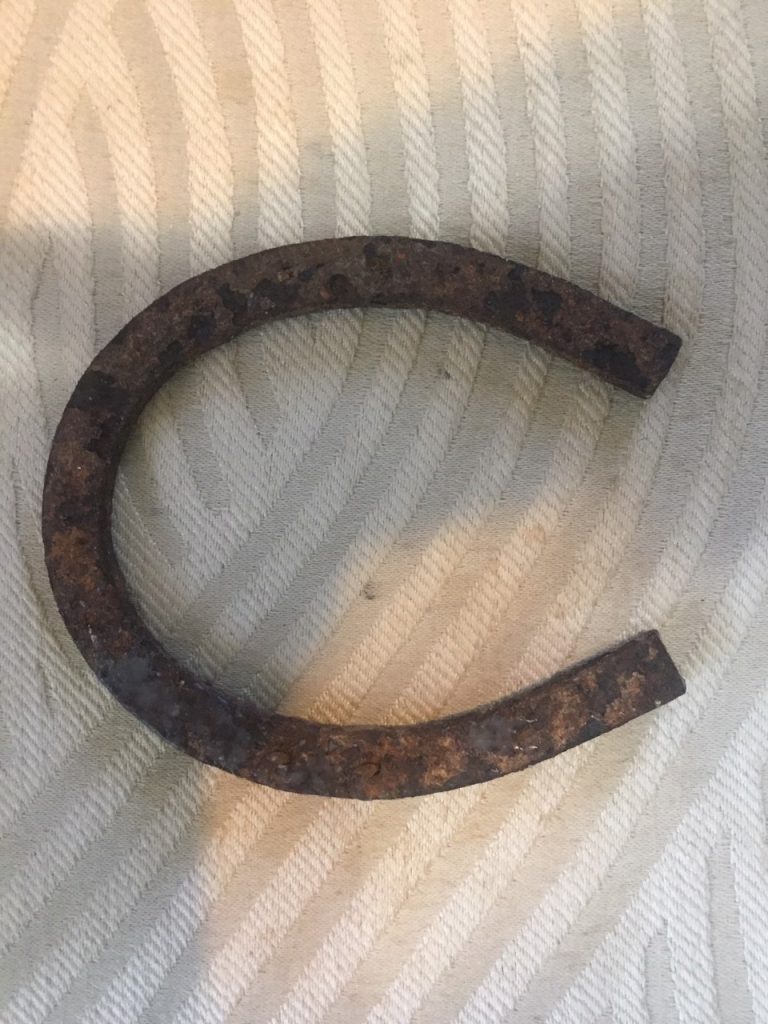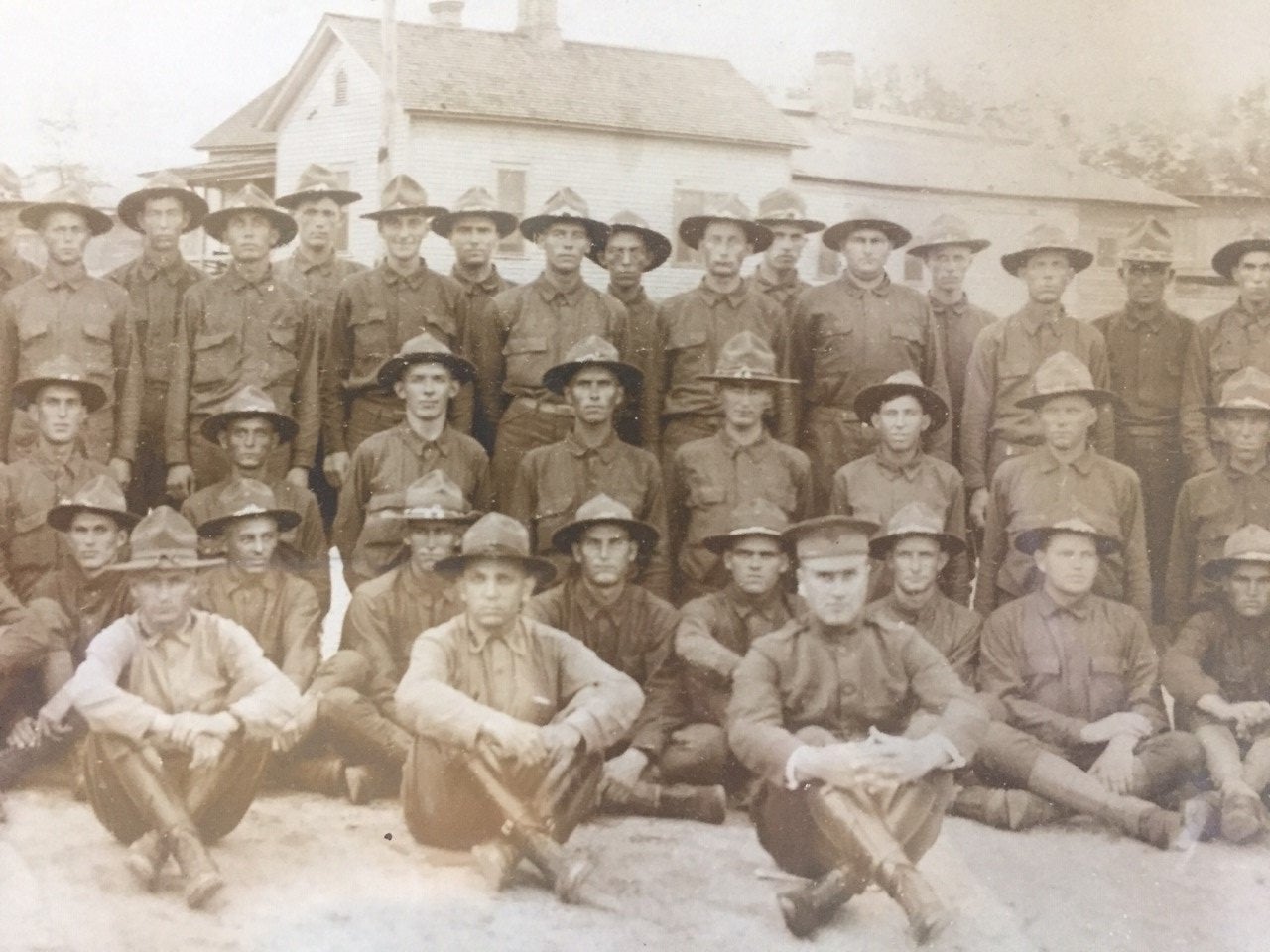In 1916, the war drums emanating from Europe echoed across the Atlantic Ocean to North America, but 22-year-old Fletcher Reed of Lincolnton, Ga., took little notice. He had heard that the Germans had sunk a ship named the Lusitania the year before and some of the men in town talked about how America would be forced to get into the fight happening overseas if the Germans went back to unrestricted submarine warfare; but none of the talk really mattered much to Reed.
Reed enjoyed his simple life on his family’s farm, which was far away from the burgeoning modern world. He woke, without an alarm clock, before the sun rose and snuffed a candle out at night after a long day of tending chickens, seeing to the crops and training horses.
Something You Might Not Have Known: Eli Whitney
At night, Reed dreamed of how he was going to woo the lovely Era Bowers who lived in neighboring Hartwell, Ga., and he thought nothing about the fighting happening an ocean away; he didn’t, that is, until he received a draft notice.
In 1917, Reed joined Company A of the 4th Rapid Regiment at Camp Hancock in Augusta and prepared to be shipped out to fight a war in a country that he could not find on a map. However, Reed’s one real talent in life would keep him out of serious peril not once, but twice.
Fletcher Reed knew horses. The wiry lad had the ability to communicate with horses and had no fear of unruly beasts. His commanding officers noticed that skill immediately and transferred him to the stables, away from the other soldiers in the barracks. They also gave Reed almost a guarantee that he would not be shipped overseas anytime soon.
[adrotate banner=”54″]
Many of the men in Reed’s original rapid response unit would not make it home, but Reed’s reassignment meant he would remain stateside to practice his craft of training horses, which included firing live artillery near them to get the animals used to the sounds of battle.
As the nation mobilized, the U.S. Army found Augusta the perfect place to create a large military encampment as the small city was already the home to an arsenal and it was directly tied to the rail lines.
The area chosen for the camp had an airfield that was once home to the Wright brother’s air school and contained plenty of acreage for the training of soldiers. Camp Hancock was hastily erected as America geared up to fight what was being called the Great War. According to the late historian Ed Cashin, 887 buildings were constructed at the camp in only two months.
Cashin notes in his book, The Story of Augusta, that 36,000 troops from Pennsylvania first arrived in August of 1917, and the numbers would swell to 60,000 before the armistice was signed, ending the war in 1918.
Meanwhile, Reed was certainly aware that his job as a horse trainer was keeping him out of the trenches of Belgium, but he was likely unaware, at least at first, that his living arrangements far away from the barracks were shielding him from another lethal enemy: the Spanish Flu.
[adrotate banner=”19″]
The Flu Pandemic of 1917 hit Camp Hancock hard with 3,000 cases appearing in September that year. According to Cashin, the camp experienced 52 deaths in just one week, and, along with most of the rest of Augusta, was shut down in quarantine.
Just as what has happened during the COVID-19 crisis, in 1917 schools, churches and theaters shut down as hospitals filled to capacity. Unlike today, there was no vaccine to battle the deadly virus that struck the nation 104 years ago.
While the flu virus ravaged Camp Hancock, over at the more-or-less secluded stables, the worst inconvenience Reed had to deal with was a lack of ice. Drought conditions and low flows on the Savannah River restricted the production of electricity, and ice could not be produced reliably.
Reed used ice chips as treats for his horses and lamented the lack of ice, but his worries about the Army’s horse’s thirst would not last for very long.
Work at Camp Hancock would grind to a halt in November 1918 when the armistice ended the war. With no war to fight anymore, Camp Hancock was decommissioned.

Today, only one building is left standing from the original encampment and that is the train depot, which is now a private residence. When the camp closed, the army dismantled the buildings with the same efficiency it had built the buildings just the year before.
As for Reed, he went back to the family farm and married his sweetheart, Era. However, he never forgot about his service during the Great War, and he kept several horseshoes from Camp Hancock’s stables as good luck charms. Those horseshoes have been passed down through the generations of his family.

Reed also made sure that no one in Augusta would ever suffer from the lack of ice again.
After the war, as Reed’s chicken farm grew over the years, he created the Reed Poultry and Ice Company, which eventually became Reed Ice. To this day, a bag of Reed Ice is a must-have for any trip to the lake or backyard barbeque.
Reed never gave up his love for horses and insisted well into his 80s that he could “break a horse in an afternoon.”
Something You Might Not Have Known: Denning House
For the record, Fletcher Reed was this writer’s great-grandfather, and yes, I inherited one of the Camp Hancock horseshoes from PaPa.
…And that is something you might not have known.
Scott Hudson is the Senior Reporter for The Augusta Press. Reach him at scott@theaugustapress.com.
[adrotate banner=”45″]








